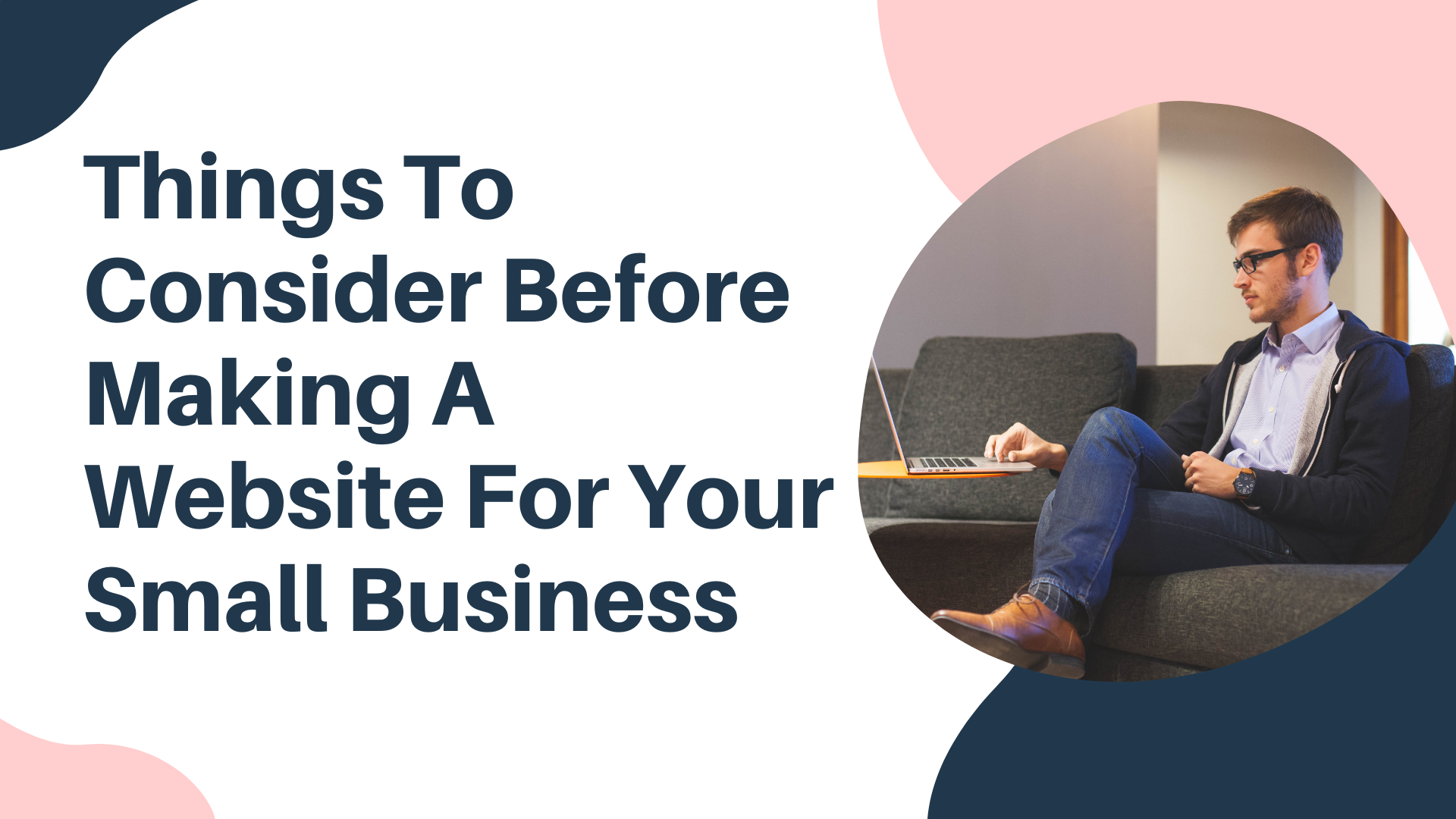A website is a necessity for entrepreneurs, small businesses, home-based businesses, affiliate marketing and anybody selling products or services or dropship business. Most of your audience will first search for you on Google, regardless of your other marketing methods. A website will enable potential customers to either find you or learn more about you after they’ve seen your other marketing material is key to creating and developing new customers.
If you’re selling online services or products, having a website is obvious. But even if you don’t sell anything directly online or are a freelancer, today’s modern digital world website have effectively replaced your business card, with information about you, your business, and services offered. Your website should detail your background, experience, and other credentials to give you credibility and give potential customers more confidence when deciding whether or not to deal with you.
1. Domain Name
The best way to start a small business website is to find the right domain name. Your domain name, which is your website address, will be the way visitors find your site. It is essential to choose a website domain name that relates to your business so people can find it and help improve your SEO rankings.
Here are some tips for coming up with the best domain name for your small business:
- Make it easy to spell. Make sure you choose a name that is easy to spell and pronounce and that doesn’t have an unfortunate double meaning.
- Keep it short. Short, clear names are easier to understand and look great online.
- Use a reputable domain extension. .com, .net, .org are most commonly used and are easy to remember. But these TLD’s are overcrowded and there are chances that your domain might not be available. But there are also a lot of newer TLD’s like .store or .lawyer etc. which are becoming mainstream also.
- Don’t use hyphens or numbers. Using numbers can make it harder for your potential visitors to remember, and they might mistype it in if they aren’t sure if it should be written in the number form or written out.
- Make it memorable! Unfortunately, there are so many websites out there on the internet. Try to make yours memorable to stand out from a crowded field.
- Create an SEO-friendly name. Whenever possible, try to create an SEO-friendly URL that states your geo-location and any keywords. For example, www.newyorkplumber.com might help you rank higher on Google and other search engines.
2. Get A High Performance Hosting Provider
Next on the list for creating a small business or start-up website is to find a host that is secure and will scale with you as your business grows. You will connect your domain name to the website host, which will then power your website. When people enter your URL into a search name, they will be able to find your small business website thanks to your hosting provider.
A website host can cost you as little as $2 a month to more than $100. It depends on your particular needs and what type of features you need. I recommend that you purchase a yearly plan instead of going month to month because you will get a better discount.

Different Hosting Plans serve different purpose:
- Business Hosting: This will be the cheapest type of hosting, and can cost as little as $2 a month (GCH Micro Hosting). GCH Business Hosting is one of the few providers who will give you cutting edge features like HTTP/2, 100% SSD Drive, PHP 7.3 with FPM, 1 GBPS Port Speed.
- Dedicated server: These will be the most expensive option, and you might have to pay $100 or significantly more each month. You have an entire server dedicated to you, which means you can completely customize it to fit your needs.
- VPS server: This is a good choice that is in between dedicated and shared servers. A VPS server is like a shared host in a dedicated environment. However, you will be responsible for all small business web design and development, so make sure you either can pay for a developer to take care of any problems for you, or you have the necessary skills.
3. Choose A Good CMS (Content Management System)
CMS is an application or software application that helps you manage your digital content. The type of CMS you will likely want is one that doesn’t require much technical knowledge. Each CMS is different and built for various needs.

Here are a few of the popular content management systems:
- WordPressis the most popular CMS. I would recommend WordPress to most small business ownersbecause of the wide variety of plugins available that help to extend the functionality of your site. WordPress is very easy to use.
- Drupal is another popular CMS that is also very flexible and easy to use. However, it doesn’t have as many themes or plugin options.
- Joomla! is used by many developers because it has very good SEO, multilingual, and security abilities than WordPress. However, if you find the right plugins, WordPress is more effective than Joomla!
When you Hosting with GCH’s Micro, Business, Enterprise or CloudSites all your CMS are available with 1-Click Install.
4. Have a Professional Design
When developing websites for small businesses, the design is one of the most important things you should consider. Using WordPress with Builders like Drag & Drop Builders like Elementor or Visual Bakery etc will help you to create beautiful website even without writing a single line of code.

A few website design tips for small businesses include:
- Utilize easy to read fonts
- Compress your graphics and optimize them to help your site load faster
- Design a navigation system that helps your visitors move from page to page
- Incorporate call to actions like “buy now” or “call now”
You can always work with design agencies like Gnosys Digital who provide professional WordPress designing services.
5. Select A Secure eCommerce Platform
The best way to make a website for a small business where you plan on selling goods is to choose a business eCommerce platform. If you want your customers to trust you with their financial and personal details, you should choose a reputable platform.
WooCommerce can transform your WordPress website into an online store. It attaches to WordPress and has many different free and premium plugins and themes that you can use.
SSL Certificates are a must for secured encrypted transaction between your customer and you. With Geek Crunch Hosting, we offer free SSL Certificates on all our hosting plans.
6. Mobile-Friendly Websites
Close to 50% of Internet traffic is now via Mobile and Smart phones. It is becoming more and more essential for all small business is to make sure your site is mobile-friendly. If you are using a website design agency, ensure they make your website mobile-friendly.
When you create mobile friendly websites – you need to ensure that load speed of the pages is less than a few seconds. There are studies that have proved that the attention span on mobile phones is extremely low. If websites don’t load faster – it will directly impact your bounce rates.

Speeds Features with Geek Crunch Hosting:
- HTTP/2. Less than 27% of Hosting Providers have HTTP/2
- 100% SSD RAID 10. There are a lot of Hosting Providers who will claim to have SSD, but they would be hybrid i.e. for their OS and services that they run. Not for your website data. We have 100% SSD RAID 10 ensuring your data is served much faster
- 1 GBPS Port Speed. Faster the port speed faster will be your website. A lot of providers including the likes of GoDaddy and BlueHost are on 100MBPS port speed.
- PHP 7.3 with FPM. We giving you the latest PHP with FPM which improves your website speed to by 25%




